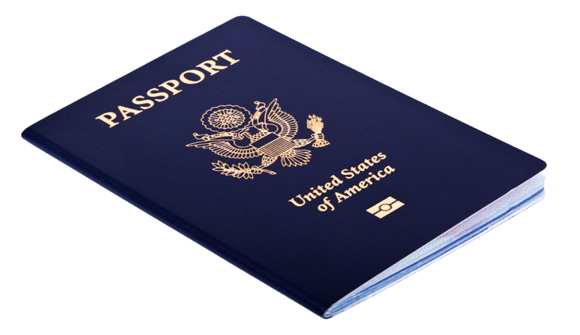 By Simon Black, Sovereign Man
By Simon Black, Sovereign Man
If 2020 has taught us anything so far, it’s that anything is possible… even things that we previously believed to be unthinkable.
Angry Twitter mobs can take over the country. Private property rights can be suspended. The entire economy can be shut down.
And it can all happen in an instant. One day everything is normal. The next, poof.
That’s why, as I discussed earlier this week, the need for a Plan B is now obvious.
And part of that, frankly, might mean having another place to go.
Maybe you’re sick and tired of massive government overreach, economic buffoonery, injustice, social chaos, Twitter mobs, etc.
Or perhaps you are simply inclined to a more quiet, peaceful way of life.
It doesn’t hurt to at least consider your options.
This is why I’ve long advocated having a second passport.
Having a second passport means that, no matter what, you’ll always have another place to go.
We’ve witnessed over the past few months that countries have closed their borders to non-residents… but citizens are still allowed in.
There are four main ways to obtain a second passport: through ancestry, naturalization, “flexibility” (like marriage, adoption, or even converting to Judaism), or investment.
The citizenship by investment option allows you to become a citizen of another country by buying property, investing in a business, or giving a direct donation to a country’s development fund.
It is the quickest option for acquiring a second passport, but also the most expensive.
But right now, citizenship by investment is going on sale.
A little background is in order:
Right after the 2008 global financial crisis, there was a boom in citizenship by investment options.
Countries were in a deep financial mess, and these programs gave them a way to raise revenue without raising taxes.
A few of these programs popped up in the Caribbean. And soon places like St. Lucia, Saint Kitts and Nevis, Grenada, Antigua and Barbuda, and Dominica were all competing for new citizens.
When hurricanes Irma and Maria brought widespread devastation to the area in 2017, Saint Kitts and Nevis became the first to drop prices.
This sparked a ‘price war’ with the other Citizenship-by-Investment programs in the region, and soon prices were cut in half.
But here we are with global tourism on hold. Airline traffic has fallen more than 95%, and hotel occupancy has collapsed.
Most of these Caribbean countries rely on tourism as their primary economic engine, so tax revenue has plummeted.
In response, St. Lucia is the first country to offer a Covid-19 discount on its citizenship by investment program. You can now buy a $250,000 bond from St. Lucia which will be paid back (without interest) after five years.
That means you could buy citizenship for as little as the cost of the filing fee– about $40,000.
But keep in mind the cost of the value of that money lost to inflation. Then there is the opportunity cost of having $250,000 tied up for five years. Plus the risk of St. Lucia defaulting on its bond obligations.
Still, for some people it is an option worth considering.
Antigua and Barbuda (which has a similar program) has also cut its fees through October 31, 2020. More countries will likely follow and offer Covid-related discounts.
And just as we saw a wave of new programs after the 2008 crisis, there will likely be another wave of new programs as well.
Think about that silver lining in these crazy times. Governments are competing for economic citizens. And that means the cost of acquiring another citizenship will continue to drop.
That is especially appealing for people who are thinking about moving abroad.
After all, with so many people working remotely now, why bother staying put in your home country? The entire world is on the table.
And moving abroad can also provide substantial tax benefits.
For US citizens, living abroad means enjoying the Foreign Earned Income Exclusion, which allows you to earn $107,600 without paying a penny of US federal income tax if you live overseas.
And if you’re married, you can double up and earn $215,200– again, completely free of US federal income tax.
If you’re not a US citizen, you can typically divorce yourself from your home country’s tax system by moving abroad.
So in addition to ensuring you have another place to go if your home country’s lockdowns become crazy again, you could also create substantial tax and lifestyle benefits for yourself.
Either way, it just makes sense to have a Plan B. And a second passport is a perfectly reasonable part of that.
Our team recently updated our free, in-depth article on citizenship by investment, so you can check that out for more information.
And if you’re a member of our premium service Sovereign Man: Confidential, we recently sent you a detailed report on the changes to St. Lucia’s program.
Source: The Daily Bell